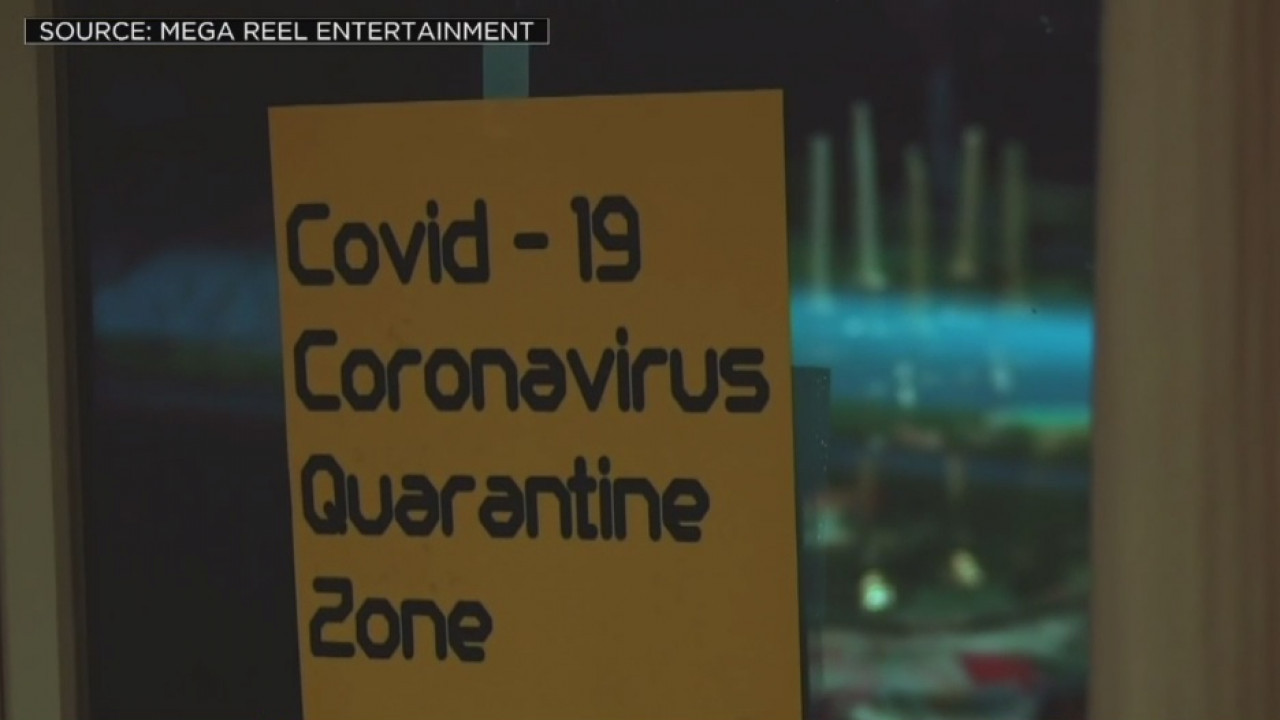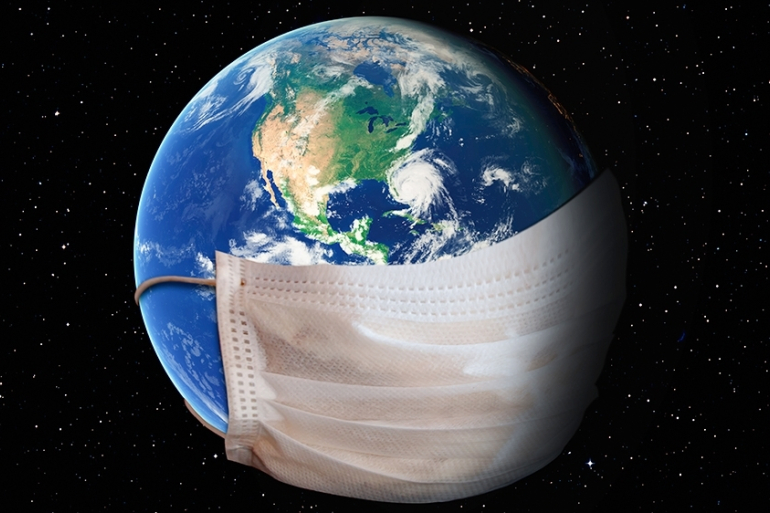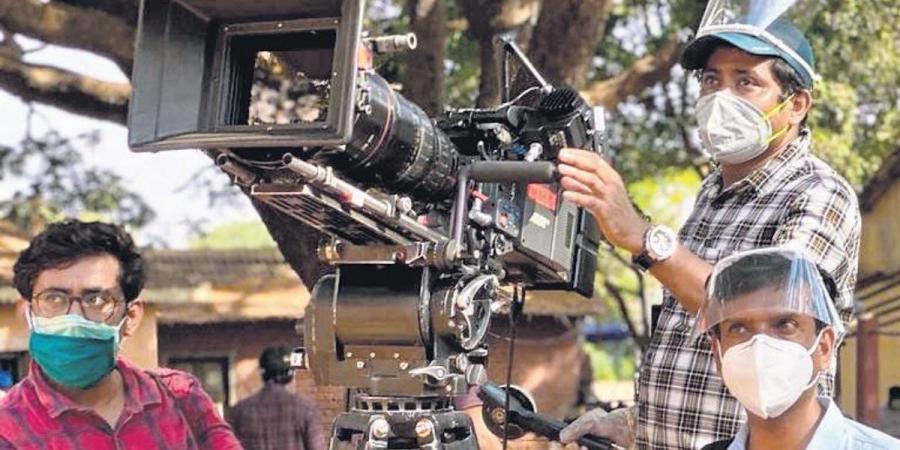
Get to know the new documentary ‘Six Feet of Separation’ and its director
The coronavirus pandemic looks extremely different depending on what part of the world you’re in. Whether you’re from the UK, the US, India, China, Greece, or Japan, your experience is extremely different from those in other countries. Director and producer Shawnda Christiansen created the documentary Six Feet of Separation to bring us together in a time of need.
Focusing on stories from people living in the U.S., Italy, Greece, India, and Brazil, Six Feet of Separation takes a look at how the coronavirus pandemic is affecting people worldwide. The documentary is meant to be a tool for unity in a time when we are more separated than ever thanks to quarantine.
We spoke with Christiansen about their inspiration behind the documentary and what it was like filming during a pandemic.
Can you tell us about your history as a filmmaker?
Yes, I was a substance abuse counselor in a residential treatment facility, and I began to dream of ways to help people outside of the four walls of my small office. Eventually, I realized that a movie and book about overcoming drug addiction would be great. So I set out to do just that, I wrote and produced the feature film Junkie which is a true story of a woman overcoming her addiction. I also released the book Miles To Go on Broken Wings – which is the true story that inspired the film junkie.

How did you start a career in filmmaking? What drew you to it?
I was not sure how to begin producing a feature film, but had been an associate producer on the pilot episode shoot of Rellik and while on that set I met Tim Russ (Star Trek Voyager). Watching him direct Rellik, I knew that Junkie had to be directed by him, so I went to him and he guided me through the process of turning my idea into a feature length screenplay, then also guided me in producing it.
What inspired you to make the documentary Six Feet of Separation?
My family has always been documentarians, I suppose. My father produced an award winning documentary in Costa Rica titled Voices Restored that I had the pleasure of helping with. I myself had never thought of producing a documentary until the day that I heard Disneyland was closing. I was on the phone with my friend and co-host Arlene Barshinger when she told me Disneyland was closing. I was already in the parking lot of Safeway, and as I approached I saw all of these people running around in a frenzy. I got to the toilet paper isle and it was all gone. I suddenly realized that COVID was a serious situation and for the first time in my life I had an opportunity to film a documentary while the incident was still “in progress.” As I was standing there I used my phone camera to start shooting b-roll of the empty shelves of the store. Then that night I hopped online and purchased a Black Magic 6K camera.

All film projects have their hardships, but this one was made during the pandemic. What were some of the difficulties you faced in making Six Feet of Separation?
The number one difficulty was the fact that we were all on quarantine. In my area, there were warnings from law enforcement that they would arrest people for “joy riding” or any “non-essential” activities so it became increasingly difficult to film outside of my home, due to that all of the interviews we conducted were done so via “Zoom.” Once quarantine was less restrictive, that enabled me to begin filming some reenactments. It was difficult to find crew but we were able to make it work.
Is there anything you want people to think about before watching Six Feet of Separation? Or to know before watching it?
Yes, please just remember that we live in a big world and people in India were not going through the same things that people in Italy were experiencing. Everyone who has participated in the documentary has expressed how much better it felt, to get outside of themselves by hearing about what others are going through in different parts of the world.
What makes Six Feet of Separation so important?
It’s important to pay attention to what is happening around us, in this documentary we get to hear from real people, including an ICU Nurse who works on the COVID front lines, as well as a human rights activist in India. Due to the variety, this documentary does not pick a side (so to speak) it gives insights from real people regarding this pandemic and there’s some really important information in this that could save lives.
Most films, if they have a narrator, only have one – how did you choose to have two in Six Feet of Separation?
We were initially going to have one narrator but then Arlene pointed out how cool the male/female narration would be, and I agreed. With a world view of the pandemic, having both made the most sense to us and really does add a special flare to the narration.

You have so many different people who took part in Six Feet of Separation – how did you get so many people involved?
My co-host in the documentary Arlene Barshinger had connections to many wonderful people around the world and it was very easy to reach them since they were all on quarantine as well. As an interesting side note, the day we interviewed Dee Wallace (ET, Cujo) was on the exact same day of the rioting in Los Angeles/Santa Monica. I was actually concerned about whether or not it was going to be ok to complete the interview with all of the unrest going on but Dee assured us she was safe. I was able to get Dee Wallace’s involvement via my usual casting avenues, and Arlene knows Kevin Sorbo personally. Once he heard of what we were doing he wanted to be involved to ensure that we cover both sides of the pandemic, rather than promoting one side.
Could you walk us through your creative process?
For me the creative process often begins with an idea for a story, I am a visual thinker, so I will actually visualize the story in my mind, then write it down. In the case of Six Feet of Separation the idea in my mind was how divided we are as a world. We are all going through the same thing but have such severely different view points about it. As a former sociology major, and counselor, I found it nothing short of fascinating to watch the hate/anger/fighting/bias of the people fighting who were once friends. Fighting over masks, stay home orders, challenging whether or not the virus was real. So I personally wanted to talk to people in Italy, where the death tolls were so terrifying, I wanted to get to the bottom of whether or not the virus was real, whether or not the shutdowns were even necessary, so this documentary was a form of personal research for me. What I found out was an eye opener.

You’re very hands-on with your projects. How hard is it wearing all the hats?
As a former program coordinator I’ve been very good at multi-tasking. I will say though on my feature film Slayer Chronicles I was discovering that as I age it becomes increasingly complicated to remember everything :) so I have learned to delegate as much responsibility as possible. In the end, having a team of reliable people to share the work load will always result in a better product.
What part of filmmaking do you geek out about the most?
Camera work, I love unique camera angles, parallax, dolly track shots, one continuous motion Gimble shots, and the most creative ways to add subtle motion to a long conversation.
What’s your filmmaking mission? Name the most important thing you want viewers to experience when watching your movies.
My mission as a film maker is to provoke change, thought, emotion and a general reaction of “Wow! I can’t believe what I just saw!!!” I want to make movies that people talk about and want to watch over and over again.
What’s your favorite film of all time, and what did you learn from it?
John Carpenter’s Halloween introducing Jamie Lee Curtis. I love that movie and I watch it every year for Halloween. As a film maker today, I still appreciate that movie because it’s so simple yet so effective. Watch it enough times and you see how simple it was to make, in most cases the boogie man is just standing in the distance background then gone. It’s the fear factor that drove the entire story, the nuts and bolts that made it successful are really a cookie cutter for countless horror films that have been produced ever since.

Do you have any advice for people considering a career in filmmaking?
Filmmaking really is all about networking…. When I completed my first film Junkie I hardly knew anyone but I walked away from that with a pretty big network. Each set, each year, my network grows. I also exhibit at the AFM which has truly open the networking floodgates for me. My number one piece of advice is: if you have a story to tell, get out there and tell it. Network to find yourself a crew, and hopefully one of the people you find will have some experience. I have not seen a lot of success for people who just write a story and wait for someone else to produce it. Those arrangements are rare unicorns for a first time filmmakers. Wild million dollar theatrical runs from festivals are rare unicorns too, so if you make a film & it isn’t a wild success. Try again. Don’t give up. Keep throwing them at the wall till one sticks cause with each attempt you’ll improve your skills even more.
Who or what would you say your current filmmaking influences are?
I have to say Christian Kane (Angel, Leverage, The Librarians, Almost Paradise, Junkie) has been very influential in my career. I met him when he accepted a role in my film Junkie. Over time I became friends with him and he gave me sound advise that has really helped me over this past year, “Always keep putting stuff out there.” It’s thanks to his advise that I completed Slayer Chronicles and why I tackled Six Feet of Separation as a feature length documentary. It’s also thanks to his advise I felt empowered enough to seek out named talent for my other projects like Richard Tyson, Dee Wallace and Kevin Sorbo. I’ve had the pleasure of a meeting with Elizabeth Rohm. It was amazing to talk to her on the phone & hear that voice I know all too well from Law & Order, Angel, Stalker. I look forward to the day that her and I get to work together on set. Another of my influencers is of course Tim Russ, who has always been a mentor in my filmmaking. I count all of these connections as my blessings as a filmmaker, to connect and work with talent I’ve watched on the screen for so many years, it’s been an awesome ride.
Are you able to tell us about any upcoming projects you have? What are they?
The next film and book release coming up for me very soon is Slayer Chronicles starring Madison Russ and Richard Tyson. Directed by Tim Russ. In it, a nest of vampires uses social media to catch some dinner. The film was completed earlier this year and is in its final stages of post production now. We have already received numerous distribution offers for the film. Slayer Chronicles is a trilogy, in which Raven Cross is a vampire slayer solving mysteries of a paranormal variety. The first book is slated to release within the next couple of months with the 2nd and 3rd to follow in 2021. I am also in production on a post apocalyptic horror film titled Into the further and am in development on a psychological thriller Subject Unknown. Subject Unknown has been delayed by the covid shutdowns, but Into the further takes place in a covid world so that will likely be completed by the end of this year.
If you could have anyone create a soundtrack for your life who would you have compose it?
Well, I’m a rock n roller to the core and I’m also a rhythm guitarist but……..Elton John, ALL DAY!
Would you ever be interested in doing an episodic series in the future?
Absolutely interested in an episodic series, I have several ideas floating around in my mind as we speak.

Since you made a whole documentary on the subject, is there anything you’d like to say to readers who are currently dealing with the stresses of the pandemic?
These are some pretty strange days we are living in. Everywhere we go people are wearing masks. In the beginning, I was feeling like it was way over the top, but in time I began to feel like my life was at risk without one. I have stopped, looked around and asked myself “is this really the world we live in now?” As I know everyone else is asking themselves the same thing too. Please remember, this is temporary. There will be social gatherings again, there will be dining room sitting at restaurants again. The feelings we are having in this very moment are all temporary, nothing lasts forever. Just remember that when you’re having a hard day, a hard week or even a hard month. It will get better, do not give up.
And finally, a fun one, cats or dogs?
Cats or Dogs? You ask as if it’s an either or thing, but around my house they’re a package deal :)



